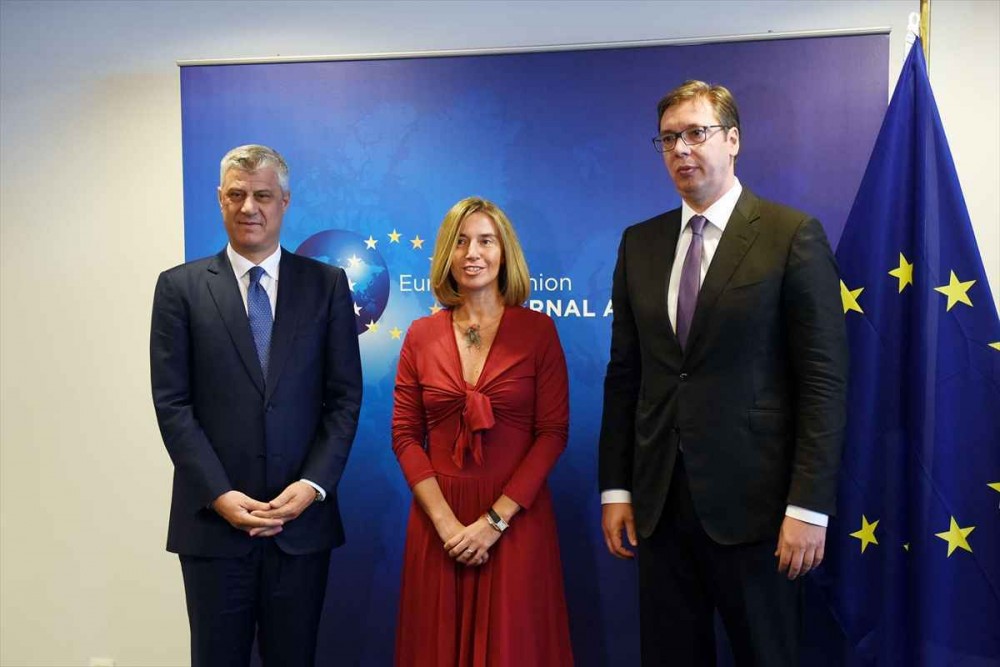
New commentary by Boško Jakšić
Blinded with Vučić, the opposition misses out on the Kosovo dialogue
Aware of the power at his disposal, in late July Aleksandar Vučić announced a new approach to solving the Kosovo conflict, urging everyone to a "courageous and realistic" dialogue. However, his initiative, in the traditional Serbian "don’t bet on it" style, hit a wall of liberal opposition obstruction.
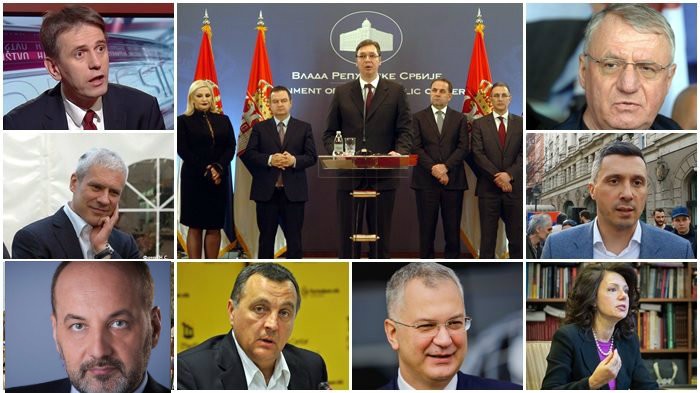
Kosovo is not only the president's problem, or SNS’s, or Movement of free citizens’ or Dveri’s. Kosovo is a Serbian problem, the most neuralgic state issue, because it influences the internal stability and peace in the region, EU accession, impact on investments, employment and overall reform process. After years of resisting, this is a rare occasion for Serbia to face the facts on Kosovo issue and join the debate on an issue that is neither personal, nor partisan. Unwillingness to understand this necessity and overcome personal quarrels, grudges and vanities is irresponsible, frivolous and finally painful.
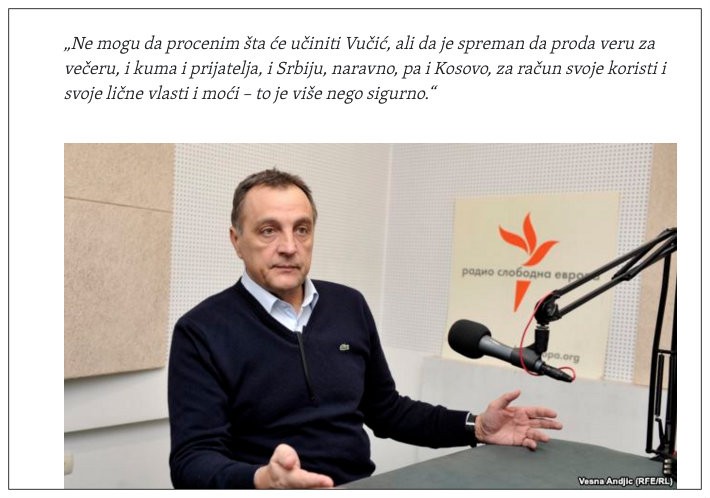
As if the leaders who swear on Zoran Djindjic haven’t learned anything from his words: "International politics is like nature. Storms, tornadoes, floods, all this happens and there is not much space for moralizing. It functions by the laws of power, that you need to grasp and find a way to get by without getting hurt. Those who moralize in this situation and who go around saying – I have intentions- and enter the arena with these intentions, end up on the floor because they are naive or incompetent. This is, in fact, a characteristic of traditional societies, where the state management is mistaken for moralizing and ideology”.[1]
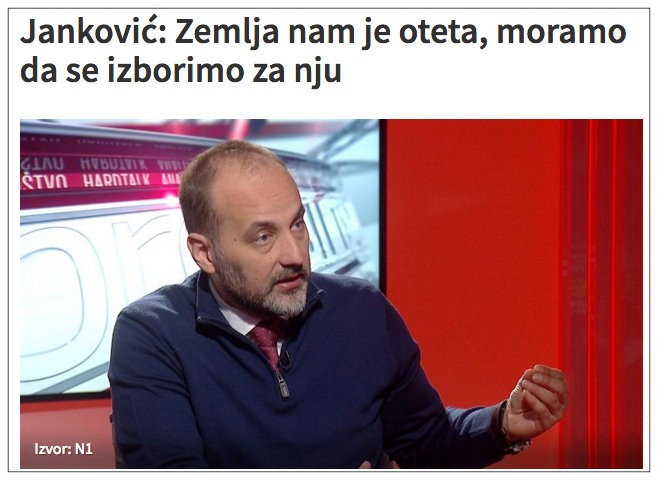
I am not a fan of Vučić, hardly will I ever be, but in his initiative I recognize the elements of this train of thought: "As a nation, we need to stop sticking our head in the sand like an ostrich, we need to try to be realistic, not allowing ourselves to lose or hand over something that is ours, but we can definitely not sit around and wait for something that we already lost to fall back into our hands”.
For over a decade, I have argued that the dialogue on Kosovo is necessary and that it is too important to be left to politicians. In order to form a position accepted by the majority, this dialogue needs to include both the government and the opposition, Serbian Academy (SANU), Serbian Orthodox Church, art historians, museum curators, generals and intelligence services, topographers, miners and traffic engineers, NGOs, media analysts. The invitation for dialogue seems as a responsible act of dealing with the reality, the more so having in mind that the President is aware Serbia is not yet ready for an open dialogue on the settlement of the conflict. But where are his interlocutors? Vučić sarcastically noted that he is "very pleased" with the initiation of the broad social dialogue - even if it was in the form of "Down with Vucic!"!. He promises that he "will not yield", but the opposition ignores him. It is understandable that the anti-European, clero-nationalist, pro-Russian opposition is against any dialogue about "the holiest Serbian word." Vojislav Šešelj talks about the "Lazar's curse." [2]
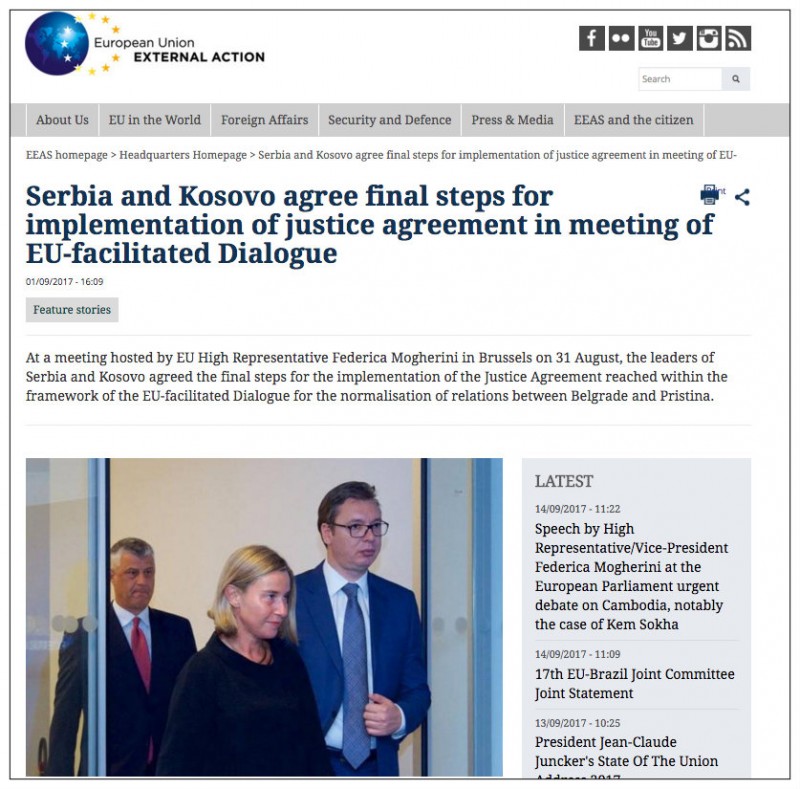
What disappoints the most is the obstructionist attitude of the liberal opposition. They reject any notion to sit down with Vučić. Being against at all costs, just because Vučić is the initiator, is not politics but blind anti-politics. If someone is against something that is a part of his own political platform – to negotiate a solution to the Kosovo conflict-, then this is pure nihilism. "It is irresponsible to be personal," Zoran Ostojić wrote in “Danas” recently.[3] The opposition has every right to see Vučić as a "black devil", but it is their obligation to sometimes sit even with the Satan to resolve the crucial issues of the country. Instead, the "Europeans" are demonstrating an elementary lack of statesmanship through the unwillingness to finally help Serbia step into the light, through joint effort.
Why don’t the liberal leaders ask themselves how they got themselves into a position that Vučić 's invitation for a dialogue on the most delicate Serbian issue received such a wide support from the EU, while the pro-European opposition stubbornly remains oblivious? Liberal opposition is missing out on the opportunity to show that Vučić is not the only one in this country who has been continuously working. Until now, and for many reasons, the President was criticized for being prone to monologue, avoiding political duel, monopolizing some television stations with national coverage in order to fight his rivals, being intolerant to difference in opinion…. All this is true, but when they get a chance to sit down with him, at his invitation, and discuss the crucial issue of this country, they do not take it. All the criticism is a bad alibi for ignoring the broad dialogue on Kosovo.
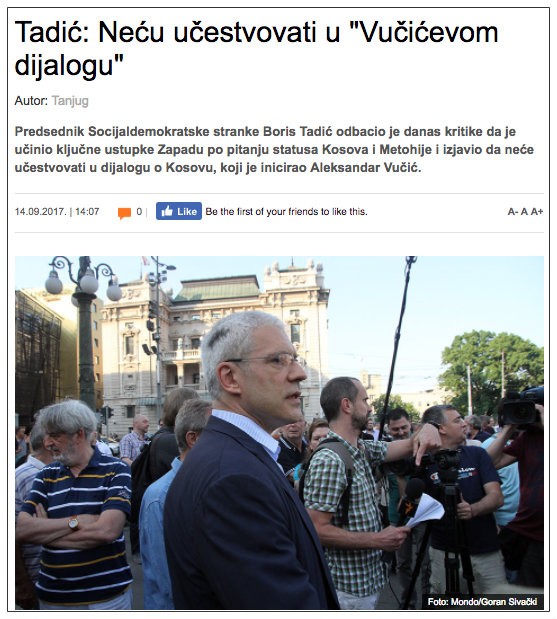
Instead of seizing the opportunity to break many existing media barriers and let the citizens of Serbia hear what they have to say, pro-European leaders themselves are creating a dilemma: do they even have a vision of a solution or their negative attitude actually supports the frozen conflict?
If by inviting them into a dialogue, Vučić wanted to test the pro-European opposition in order to show that they are not willing to openly state their position on Kosovo– unfortunately he was right. Blinded by shortsightedness, opposition has agreed to be the guardian of "myths", making Vučić a courageous visionary. Probably the last thing they wanted.
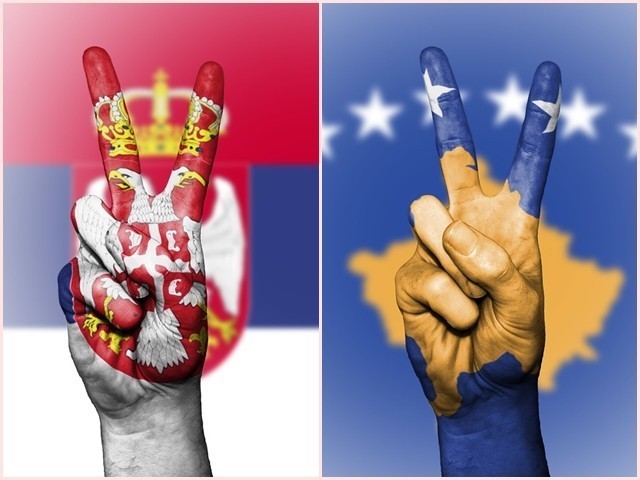
Obstruction entails political responsibility. For the Rule of Law it is undoubtedly important to solve the problem of Savamala.[4] But can any reasonable person claim that the arrogant demolition and the conspiratorial silence from the Sava banks weighs the same as the neuralgic resolution of the Kosovo conflict? The critics who complain that the President calls for dialogue but avoids announcing what his intentions and starting positions are- are also right. Presumably, based on the article that was published in "Blic" at the end of July and the recent press conference, Vučić wants to solve the Kosovo problem. "I am not ashamed to say that I've changed. Only donkeys do not change."[5]
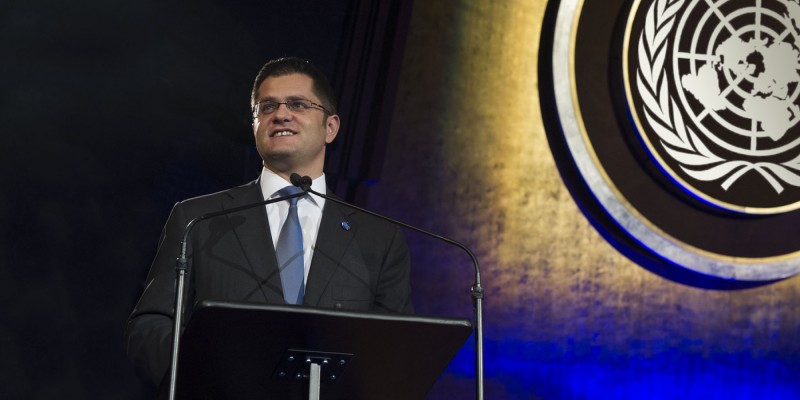
How did this announcement of the "new road" occur? Was it due to the persistent demands of EU, which uses Kosovo to condition Serbia’s membership in EU, or because he wanted to secure his own political future; is it a premeditated maneuver or a sincere desire to free Serbia from the burden that halts its future? Various options of interpretation are on the table.
Vučić must disperse the speculations. If I was in his place, I would come before the people – that the President doesn’t find hard - and say: The dialogue is not the recognition of independence but Serbia’s desire to normalize relations with Kosovo. Not only because this is required by the EU, not only because this will ensure the support of the West, but in order to relieve Serbia of Kosovo's captivity. There is no more time for rushing in, much less for clumsy rhetorical acrobatics such as the ones that could be heard from Vučić’s associates before he provided the public with reasonable arguments on why the Serbian list supported Ramush Haradinai as Kosovo Prime Minister. "This was the only possible decision compared to the two other options they had," said the President.[6] Serbian list made a "wise decision" because it will enable them to fight for a better future for the Serbian people in Kosovo. Also, Serbs supported Haradinai because they knew that he also must fulfill the homework given to him by EU and finally form the Community of Serbian municipalities.[7] This will be a crown contribution of Priština to the normalization of relations.
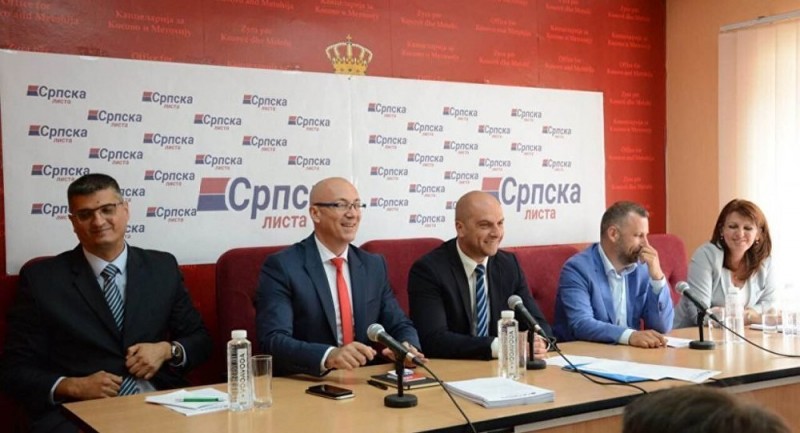
With such logical arguments, the President of Serbia should be supported in order to unite the nation around a broad dialogue on Kosovo. Such a discussion is technically impossible to be held in one place, not only because of the space, but also for the reason of time that would take, so Vučić should determine the format of the dialogue before the institutions and individuals are officially addressed and asked for their relevant opinion – which must not be dictated by loyalists to the ruling party but an expression of an open debate.
He should also accurately clarify his stance on the changes to the Constitution and the fate of that unfortunate preamble. Is he maybe connecting the Kosovo issue with the question of Serbian Republic in compensation?
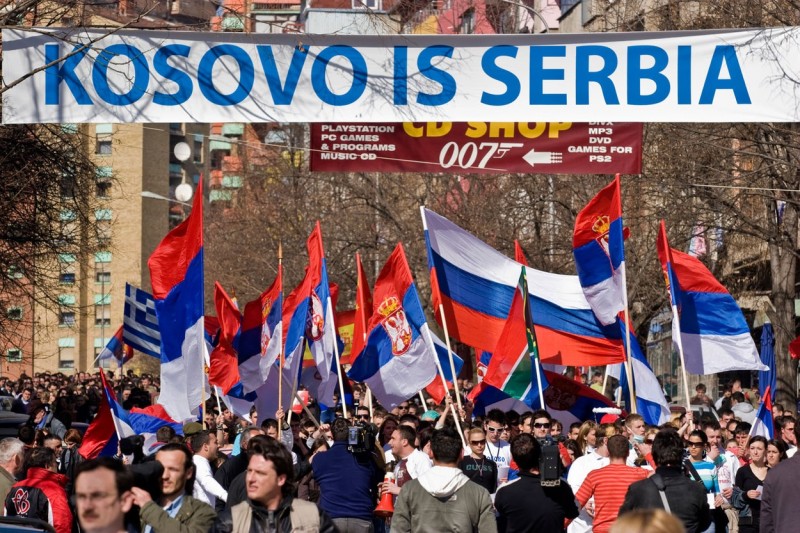
As far as the opposition is concerned- it is time for those Zoran Djindjic’s "frogs":[8] immediately swallow the biggest and ugliest one. Even if it is called Aleksandar Vučić. And a President should, if he doesn’t want to back down, as promised, restrain from inappropriate offensive disqualifications of those invited to sit with him at the same table. September is passing. The worst thing that can happen is the status quo. It would be a defeat of Vučić’s personal initiative, the debacle of irresponsible opposition and a triumph of reluctance to accept the reality on the ground. The attempt to make a lasting normalization of relations between Serbs and Albanians in the next hundred years, and therefore eliminate 80 percent of our political problems as the President put it, would fail. We would spend another five years discussing banalities such as license plates. In this worst case scenario, the future would at least for a while, remain fossilized under the illusion that Kosovo is Serbia.
